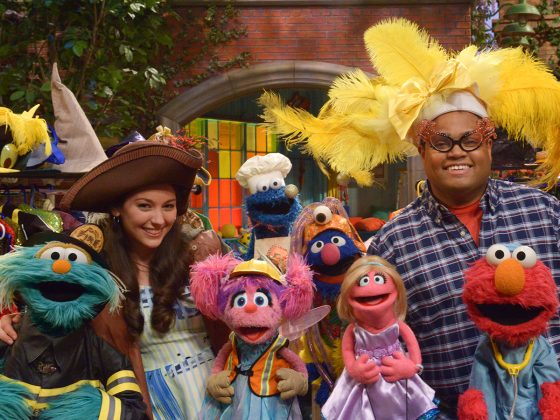
Enriching & Extending Play
Help parents find ways to encourage play-based learning at home and on the go.
Children do some of their best learning when they play. In this workshop, you’ll celebrate the importance of play and help parents brainstorm ways they can encourage play-based learning at home and on the go.
- Watch the video together with parents, then discuss ways parents remember playing when they were kids. Ask parents to talk in small groups about a cherished memory of playing. Ask: “What’s something you loved to play as a kid?” “What do you love about it?” “Why do you think this play memory has stuck with you?” Invite parents to share their memories.
Explain that as parents played as kids, they were also:- Developing social skills (sharing, cooperation)
- Learning new vocabulary and concepts
- Practicing problem-solving skills
- Overcoming fears
- Building mental flexibility
- Learning to wait and take turns (self-control)
- Building memory
- Developing gross and fine-motor skills
- Inspiring creativity
- Then ask parents to share ways their children play on their own. Ask: “How does your child like to play?” “Where do you see them playing most?” “What do they like to play with friends?” “What do they like to play alone?” “What do they like to play with you?”
- Next brainstorm ways parents might add to the scenarios they’ve described. Choose a scenario and ask the group to think of a few ways they might discover the benefits of play by taking this even further. How might they join in? Could they add any props? Music? Stories? (Everyday materials like paper-towel tubes, boxes, oversized socks, and stuffed animals are great for inspiring play.)
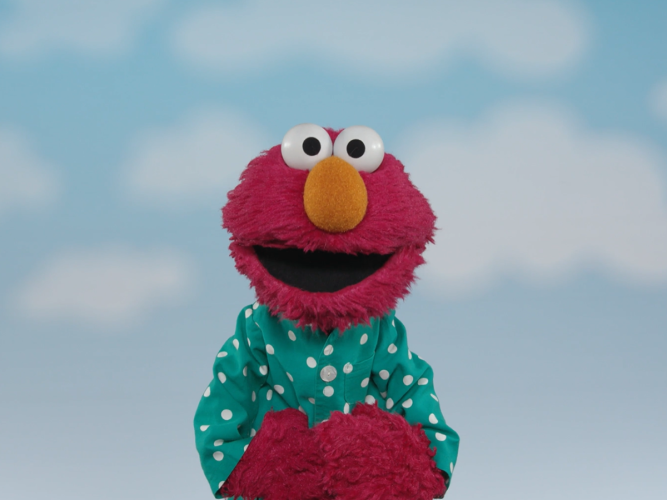
Listen, Feel, and See with Elmo
When children are in the hospital, this mindfulness game can help them soothe themselves.
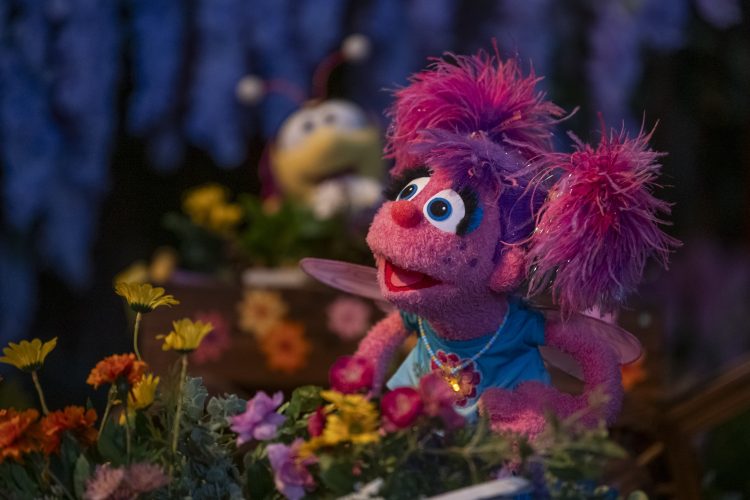
Watch and Play: Abby's Magical Beasties
Watch this episode and explore ways to extend the learning at home.
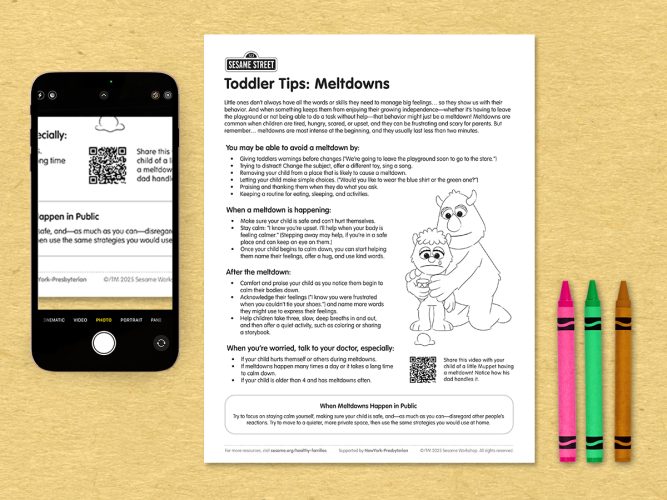
Toddler Tips: Meltdowns
Strategies for during and after a meltdown…and even some ways meltdowns might be avoided.
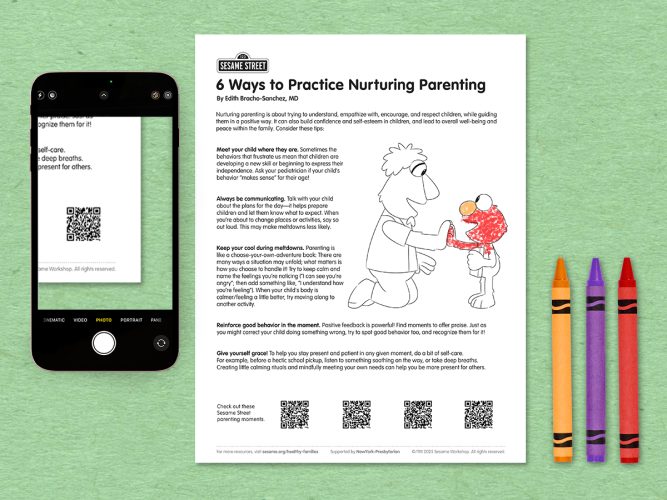
6 Ways to Practice Nurturing Parenting
Tips from a pediatrician on understanding, empathizing with, encouraging, and positively guiding children.
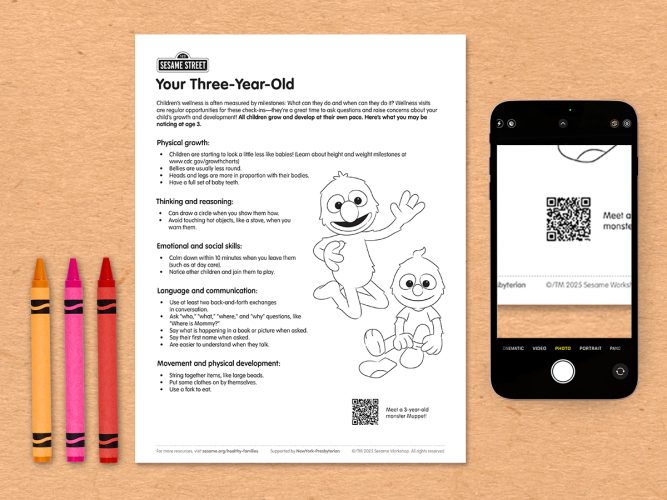
Milestones: Your Three-Year-Old
All children grow and develop at their own pace; use this chart to guide your expectations and observations so you can talk to your child’s pediatrician about questions or concerns.
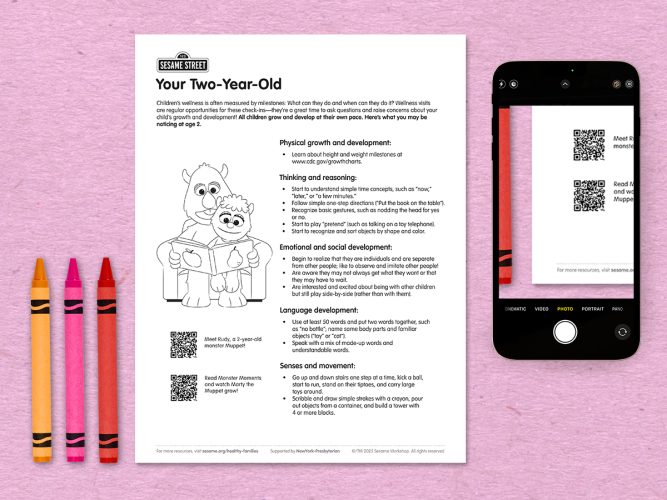
Milestones: Your Two-Year-Old
All children grow and develop at their own pace; use this chart to guide your expectations and observations so you can talk to your child’s pediatrician about questions or concerns.
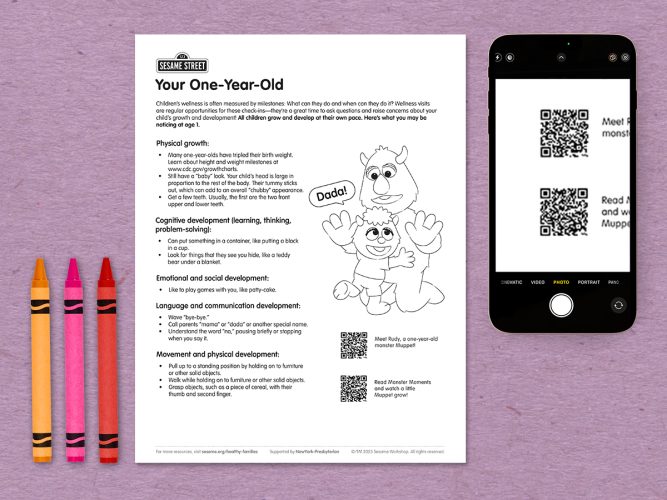
Milestones: Your One-Year-Old
All children grow and develop at their own pace; use this chart to guide your expectations and observations so you can talk to your child’s pediatrician about questions or concerns.
